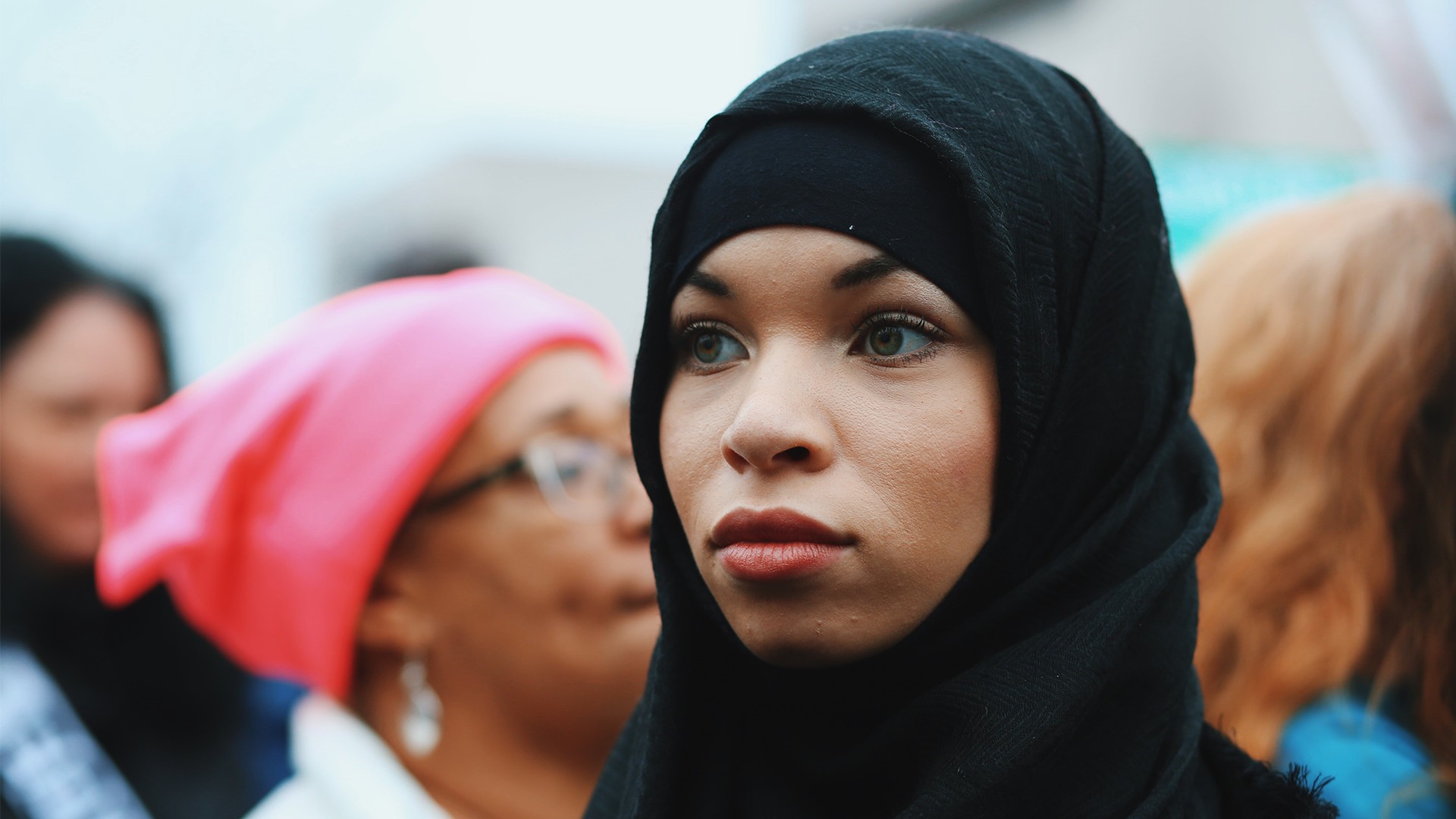Photo by Gavin Rodgers via Alamy Stock Photo
The Netherlands has approved a ban on wearing the full-face veil in public, following countries such as Denmark, Austria, France, Belgium, and Bulgaria in passing anti-Islamic dress laws.Under the new measures—which were passed by the Netherlands’ parliamentary Senate—Muslim women who wear the burka or niqab in government buildings will be subject to a €400 fine. The Dutch government announced that the ban would be “partial”, the Financial Times reports, with coverings being banned on public transport, schools, hospitals, and public buildings. Full-face veils will be allowed for individuals visiting relatives in hospitals, and exemptions will be made during festive or religious holidays.The ban has long been associated with Geert Wilders, the leader of the right-wing, anti-Islam Party for Freedom, who tweeted in celebration of the new measures earlier today. “Finally, 13 years after a majority in the Dutch Parliament voted in favour of my motion to ban the burqa, it became law yesterday,” Wilders wrote, linking to a news article about how such proposals will help “de-Islamize the Netherlands.”Despite the headline-grabbing nature of the ban, it will have limited impact practically: it’s estimated that only around 150 Muslim women in the Netherlands wear the burkha and niqab, according to one 2013 study.
Watch: Faces of Resistance: Blair Imani Muslim women are not the only ones criminalized by such bans. In Austria, where all full-face coverings were banned in October 2017, the majority of arrests have not been of Muslim women. In one case, Vienna police arrested a man wearing a face-covering shark costume as a PR stunt. European countries aren’t the only places in which Islamic dress is being banned in certain spaces. In March 2018 an Indonesian university banned the burkha amidst fears of students being radicalized on campus. Turkey and Tunisia both have histories of such bans, although they have since been relaxed or lifted entirely.Experts situate the ban within the wider context of Islamophobic policies and social attitudes that have been sweeping across northern European countries. “Generally speaking, this Islamophobic, anti-Muslim legislation we’re seeing throughout Europe and North America is evidence of a strong state that tries to control its citizens,” Dr. Farid Hafez tells Broadly. Hafez is the co-editor of the 2016 European Islamophobia Report, and author of the book Islamophobia in Austria.For Hafez, so-called burkha bans should be viewed within their historical context. “The regulation of the female Muslim body is central to every paradigm of racism in our world,” he explains. “Hijab bans were one of the first issues to come up during colonialism, and it merged with the growing Muslim population in many western European states.”He believes that bans on Islamic dress challenge the foundations of liberal European democracies. “These bans minimize and reduce the notion of a liberal society where an individual is free,” Hafez explains. “That’s a core problem. The state will try and have control over people who they identify as the weakest—Muslim women, for instance—but at the end of the day, the state may come after other groups that are weak too. So in the end, everyone is affected.”Banning Islamic dress in public can also be construed as a form of religious discrimination, Hafez argues. “At the end of the day it's about reducing the standards of religious freedom,” he says, “and the state interfering in what kind of religion is a good and right religion; and which one is a wrong and bad religion.”
Muslim women are not the only ones criminalized by such bans. In Austria, where all full-face coverings were banned in October 2017, the majority of arrests have not been of Muslim women. In one case, Vienna police arrested a man wearing a face-covering shark costume as a PR stunt. European countries aren’t the only places in which Islamic dress is being banned in certain spaces. In March 2018 an Indonesian university banned the burkha amidst fears of students being radicalized on campus. Turkey and Tunisia both have histories of such bans, although they have since been relaxed or lifted entirely.Experts situate the ban within the wider context of Islamophobic policies and social attitudes that have been sweeping across northern European countries. “Generally speaking, this Islamophobic, anti-Muslim legislation we’re seeing throughout Europe and North America is evidence of a strong state that tries to control its citizens,” Dr. Farid Hafez tells Broadly. Hafez is the co-editor of the 2016 European Islamophobia Report, and author of the book Islamophobia in Austria.For Hafez, so-called burkha bans should be viewed within their historical context. “The regulation of the female Muslim body is central to every paradigm of racism in our world,” he explains. “Hijab bans were one of the first issues to come up during colonialism, and it merged with the growing Muslim population in many western European states.”He believes that bans on Islamic dress challenge the foundations of liberal European democracies. “These bans minimize and reduce the notion of a liberal society where an individual is free,” Hafez explains. “That’s a core problem. The state will try and have control over people who they identify as the weakest—Muslim women, for instance—but at the end of the day, the state may come after other groups that are weak too. So in the end, everyone is affected.”Banning Islamic dress in public can also be construed as a form of religious discrimination, Hafez argues. “At the end of the day it's about reducing the standards of religious freedom,” he says, “and the state interfering in what kind of religion is a good and right religion; and which one is a wrong and bad religion.”
Advertisement
Watch: Faces of Resistance: Blair Imani

Advertisement
Criminal justice experts are also fearful that the ban could stoke Islamphobia and leading to violence and division. “The banning of the Muslim veil within public spaces can also act as a trigger point for further resentment and hatred which acts as a trigger for Islamophobia,” explains Dr. Imran Awan, a criminologist specializing in Islamophobic hate crimes. “Following the climate of hate surrounding Donald Trump's election, far-right white populist groups in Europe are likely to use this incident to create further divisions in society.”More than any specific ban, the impact of the Netherlands' proposals will be largely symbolic: it sends a message to its citizens about the correct way for a woman to be, and to worship, and to dress. “The number of women wearing the face veil is minimal, yet the Netherlands makes this a political issue,” Iman Atta of anti-Islamophobia advocacy group Tell MAMA tells Broadly.“These are truly worrying times. Maybe the next time politicians in the Netherlands talk about women’s rights, they can be challenged on why they are willing to shut down the right of women to choose what they wear.”
